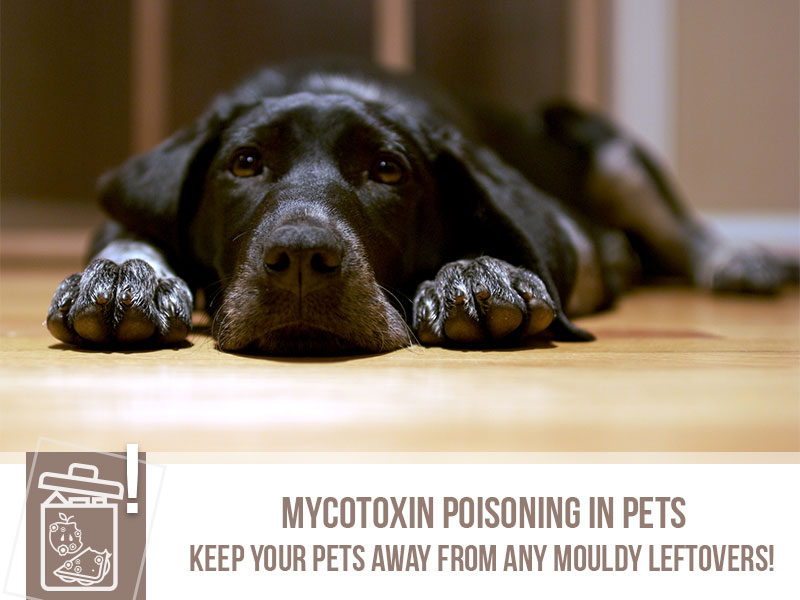
Mycotoxin poisoning in pets Keep your pets away from any mouldy leftovers!

Did you know that your waste bin can hide dangerous and unexpected poisonous substances for your pets? Let's talk about mycotoxin poisoning in pets.
Most humans know that eating decomposing mouldy food is not the best idea, not only because the flavour might not be very pleasant but also because it can make you sick. The same cannot be said for our four-legged canine companions, who will often eat the most surprising things with a very happy look on their faces.
Not all moulds are poisonous but the mould that normally grows over certain decomposing foods such as bread, cheese, pasta, walnuts, and other decaying matter like compost can be life-threatening if ingested by our pets.
When these foods start decomposing inside our rubbish containers they provide the ideal environment for the proliferation of different types of fungus such as Aspergillus flavus and Penicillium spp.. These fungi don't take long to grow and they produce toxins which can be very poisonous if ingested by our pets, even in small amounts. All it takes is for a curious dog to lick some mould residue from the inside of an unwashed food caddy for the toxins to cause serious illness.
Mycotoxin poisoning is an acute toxin induced gastroenteritis that can also cause neurotoxicity. Affected animals present abdominal pain, vomiting, liver damage, uncoordinated movements, muscle tremors, seizures, and a dangerous increase in body temperature.
Affected animals can show signs within just 30 minutes of eating the poisonous mouldy food. Depending on the amount ingested and how early the animal is treated, this type of poisoning can be fatal.
If you notice any of these signs on your pets it is very important to take them to the vet immediately. The sooner they are diagnosed and treated, the better are the chances for a full recovery.
The best way to avoid your pet from ever having to go through this is to go over your daily recycling routine and ensure your dog never has access to any potentially dangerous leftover foods, rubbish bags or waste containers.
Image: "jedi puppy kitchen tricks" by lecates, was built upon and is licensed under CC BY-SA 2.0
Would you like to know more about cats and dogs? Check our Feline and Canine Courses:
Feline courses
Canine courses
Published: 11 Apr 2017
Read the previous article: Tight nosebands in equestrian competitions raise welfare concerns

